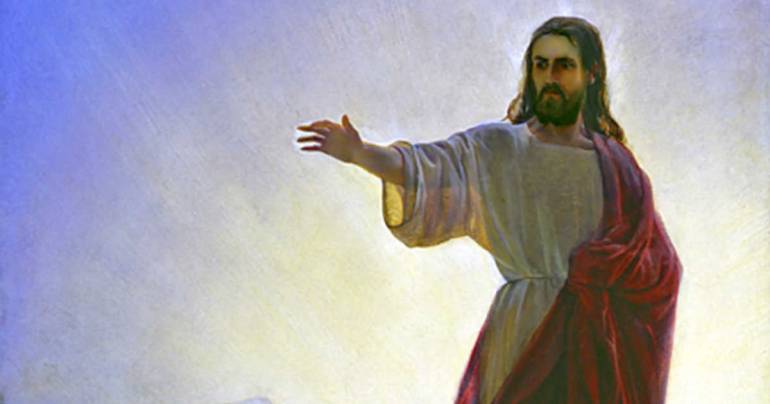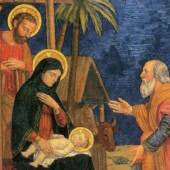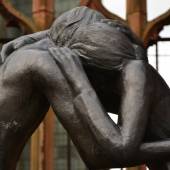Fear not!

June 25, Sunday of the 12th week in Ordinary Time
Daily Readings: 1st Reading: Jeremiah 20:10-13; 2nd Reading: Rome 5:12-15; Gospel: Matthew: 10:26-33
What is that one commandment which is repeated not less than 365 times in the Holy Bible but is not one among the Ten Commandments? Fear not. Fear is a strong negative feeling regarding one’s future, health, dear and near ones, and many other untold and indescribable issues. It is normal and human to be afraid of.
That is why God repeats it every day of our life for the entire year and year by year. But sadly enough, it is a sign of a lack of faith, confidence, and trust in God. That needs to be modified and improved upon in time. Prophet Jeremiah knew the cause of and the remedy for his fear. He remains fiercely loyal. The community of Matthew, which was going through a tough transition, knew where to place its trust. The Church of Mathew kept its faith in Jesus and was ready to proclaim his name everywhere.
The First Reading from the Book of Jeremiah is taken from “The Confessions of Jeremiah” or “The Intimate Papers of Jeremiah”. It is the continuation of a passage (10:1-9) where the Prophet denounces Pashhur, the chief officer of the house of the Lord. It is here Jeremiah pronounces those intimately profound words where he tells us that God enticed/seduced him, and he allowed the Lord to do so.
The enemies of Jeremiah wanted to finish him off in style. In this context, he feels how the Lord, like a might champion, takes on his enemies and persecutors. He prays to the Lord to see how those who trust in Him will not fail. Jeremiah lived through his feelings of isolation and abandonment. This reading reflects Jeremiah’s unswerving confidence in his most intense personal crisis. We have a key here to unlock the door of faith in the Lord.
The Responsorial Psalm pleads the Lord to answer the pleas of His people out of His great love for them, not out of charity or compulsion. The Psalmist declares that for God’s sake, s/he has to bear insults and has become an outcast among his brethren and a stranger to his children. Yet he is full of zeal for God’s house. Jesus quotes this Psalm while he cleansed the temple in John 2:17.
The Psalmist feels God is silent and doesn’t answer his earnest pleas. Like the modern children who believe in instant food and immediate satisfaction in anything and everything, the Psalmist wants a ready-made answer. His faith in God makes him confess that God revives the hearts of those who seek him. He hears the cry of people with low incomes.
In the Second Reading, St. Paul compares Adam and Jesus Christ. He portrays Adam as the prototype of the one who is to come. Yes, the era of Adam is marked by sin and death, while the time of Jesus belongs to righteousness and life. Sin is an active force within and among all human beings. It has been there since the beginning of the human race. Yet, Adam and Eve’s sin brought down Jesus Christ, the Saviour, into the world.
As one person’s sin affected the whole world, the grace of God and the gracious gift of Jesus overflows for humanity without any bound. It is because of his obedience the era of elegance dawned. The tragedy of Adam’s failure is offset by the magnificent abundance of Jesus’ redemption.
Today’s Gospel Reading from St. Mathew is part of Jesus’ Community Discourse where he chooses the Twelve (10:1-4), sends them out on a mission (vv. 5-15), foretells them of the impending persecutions (vv. 16-25). In vv. 26-32, he prepares a list of people the apostles should and should not be afraid of. Anyone serious about their life and wishes to live it meaningfully following the rules and regulations meticulously will find themself in trouble.
Problems are bound to arise from antisocial and selfish elements who cannot think beyond themselves. We are called to look into Jesus's teachings, which clarify that the soul is more important than the body. Here ‘body’ could be understood as flesh rather than the entire human person.
Every human person is more valuable than the sparrows who have God’s providence. The believers should learn to acknowledge Jesus as the Lord. Proclamation of the Gospel should be their primary goal. We know who we are! Let’s, then, proclaim the Gospel at all costs.
Radio Veritas Asia (RVA), a media platform of the Catholic Church, aims to share Christ. RVA started in 1969 as a continental Catholic radio station to serve Asian countries in their respective local language, thus earning the tag “the Voice of Asian Christianity.” Responding to the emerging context, RVA embraced media platforms to connect with the global Asian audience via its 21 language websites and various social media platforms.











